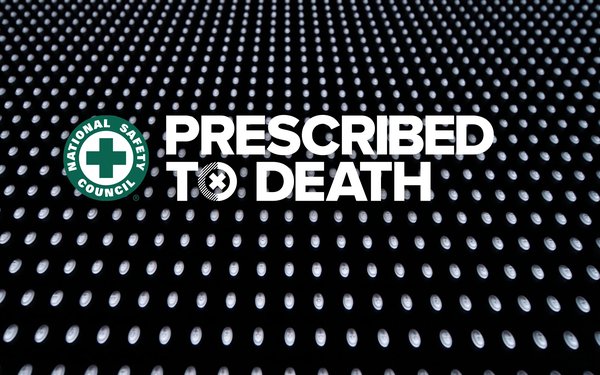
This series
showcases a selection of winning cases from the 2019 Effie Awards United States competition. This year marks the
50th Anniversary of the Effie Awards, which
recognize effectiveness in any and all forms of marketing communications that contribute to a brand's success.
Category: Disease Awareness & Education:
Nonprofit
Client: National Safety Council
Agency: Energy BBDO
Contributing Agencies: PHD, Ketchum
Challenge: How can you get Americans to take the threat of prescription opioids seriously when they don’t believe addiction can happen to someone like them?
advertisement
advertisement
This was the challenge that faced National Safety Council (NSC), an American nonprofit dedicated to eradicating preventable deaths from causes like falling, choking, car accidents, and drug
overdoses.
Though NSC had been doing life-saving work for over 100 years, in 2016 most Americans had never heard of it. The organization had just 1% unaided
awareness. NSC could save more lives if people knew who it was. With little money for a brand campaign, we knew that NSC’s next campaign educating
about a preventable killer also needed to establish NSC as a leader in safety.
Prescription opioids kill more than 22,000 Americans each year. Yet, when this project began in
early 2017, media coverage of the opioid epidemic focused on heroin and fentanyl, not prescriptions. When NSC fielded a survey on drug abuse, they realized how many were at risk:
Prescription opioids were available in three out of five homes.
Through our research, we realized an alarming attitude about addiction.
Insight: Americans think opioid addiction and overdoses are a problem for “addicts,” not people like them.
Solution:
We developed
"Prescribed to Death," a program confronting people with their own vulnerability to prescription opioid addiction and overdose, while educating them to protect themselves.
At the
heart of the program was a memorial to the victims of the opioid crisis. The memorial wall was a data visualization comprised of 22,000 pills carved with the real faces of people who had died from
opioid overdoses. It was impossible to visit the wall without seeing a face that looked like you.
The memorial launched in Chicago before touring nationally. To bring this
experience to a broad national audience, we developed a digital memorial where people could explore victims’ stories, and distributed films sharing the stories of three overdose
victims.
NSC’s survey on drug abuse revealed one out of three Americans taking prescription opioids don’t know they’re taking opioids. So we also developed and
distributed educational content through social and NSC’s owned channels to helped people recognize opioids when they see them.
Because we wanted to trigger a
meaningful behavior change to protect people, we developed Warn Me Labels, a sticker to be placed on insurance cards that could spark conversations with prescribers about the risks of prescription
opioids. We distributed them at the memorial and to employers across the country.
Results:
"Prescribed to Death" exceeded all our
goals.
The program helped people recognize prescription opioids as a relevant threat:
- Exposed consumers were 2.5X more likely
to perceive addiction as a serious threat to them or their families.
And triggered a meaningful behavioral change that could protect them from addiction and
overdose:
- 1,021,000+ Americans now have Warn Me Labels on their insurance cards to spark potentially life-saving conversations with doctors.
- After visiting the memorial, consumers were 31% more likely to talk to their doctor about opioids .
We used
NSC’s small budget to establish NSC as a national leader in safety
- +45% increase in perception of NSC as “a leader in fighting preventable deaths
and overdoses” among exposed consumers.
- The effort garnered 2,455,606,809+ billion earned impressions, exceeding our goal of 1 billion earned
impressions.